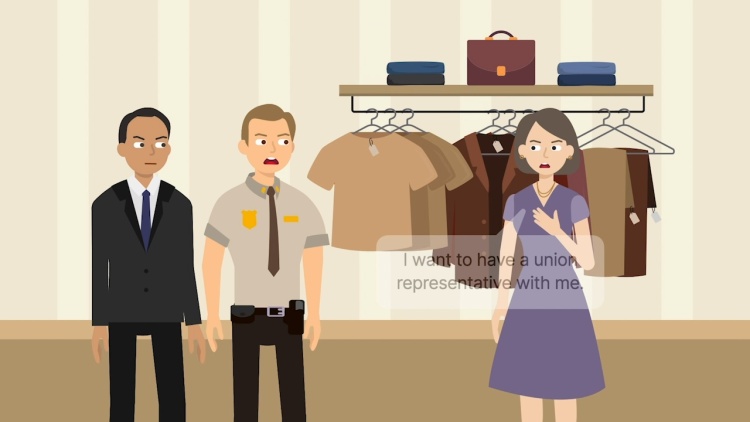National Labor Relations Board v. J. Weingarten, Inc.
United States Supreme Court
420 U.S. 251 (1975)
- Written by Tammy Boggs, JD
Facts
J. Weingarten, Inc. (Weingarten) (defendant) operated retail stores, some of which had lunch counters in them (lunch counter stores) and others that did not (lobby stores). A union employee, Leura Collins, worked for years at a lunch-counter store that maintained a free-lunch policy. In 1970, Collins was transferred to a lobby store. In 1972, there was a report that Collins had shoplifted. A loss-prevention specialist, Hardy, spent two days secretly observing Collins at the lobby store but found nothing wrong. Hardy learned of a more specific allegation that Collins had recently paid $1.00 for a box of chicken that sold for $2.98. Hardy and the store manager called Hardy in to an interview, during which they questioned her about the shoplifting allegations. During this interview, Collins repeatedly asked for a union-shop steward to be present, but her request was denied. Collins explained the circumstances surrounding her purchase of chicken, and Hardy was satisfied with her explanation. Collins proceeded to disclose that she received free lunches from Weingarten. According to Hardy, free lunches were not allowed at lobby stores (as opposed to lunch counter stores), and he conducted a detailed interrogation of Collins to arrive at an amount that she supposedly owed the company. Collins reiterated her request for a union representative. During the same interview, Hardy was informed by Weingarten’s headquarters that the company was uncertain whether the policy against free lunches applied to Collins’s lobby store. Most if not all other employees at the store took free lunches, having never been informed of a different policy. Hardy ended Collins’s interview, and the union (plaintiff) filed an action before the National Labor Relations Board (the board). The board found that Weingarten had violated the National Labor Relations Act by denying Collins’s request for a union representative during the interview. The Fifth Circuit denied enforcement of the board’s order, and the matter came before the Supreme Court.
Rule of Law
Issue
Holding and Reasoning (Brennan, J.)
What to do next…
Here's why 910,000 law students have relied on our case briefs:
- Written by law professors and practitioners, not other law students. 47,100 briefs, keyed to 997 casebooks. Top-notch customer support.
- The right amount of information, includes the facts, issues, rule of law, holding and reasoning, and any concurrences and dissents.
- Access in your classes, works on your mobile and tablet. Massive library of related video lessons and high quality multiple-choice questions.
- Easy to use, uniform format for every case brief. Written in plain English, not in legalese. Our briefs summarize and simplify; they don’t just repeat the court’s language.





